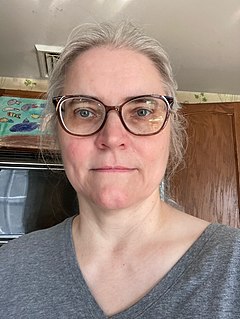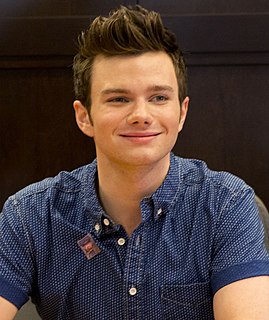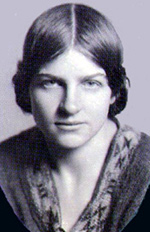A Quote by Debra Hamel
What did it for me was a blurb on the back of a book I was reading. The blurber wrote - I just looked it up - that "Trials have provided some of the best examples of 'micro-history' or the 'new narrative'...." And that was it.
Related Quotes
What I like best is a book that's at least funny once in a while. What really knocks me out is a book that, when you're all done reading it, you wish the author that wrote it was a terrific friend of yours and you could call him up on the phone whenever you felt like it. That doesn't happen much, though.
I doubt if I shall ever have time to read the book again -- there are too many new ones coming out all the time which I want to read. Yet an old book has something for me which no new book can ever have -- for at every reading the memories and atmosphere of other readings come back and I am reading old years as well as an old book.
When I was thirteen, I was in a supermarket with my mother, and for no reason at all, I picked up a science-fiction book at the checkout stand and started reading it. I couldn't believe I was doing that, actually reading a book. And, man, it opened up a whole new thing. Reading became the sparkplug of my imagination.
I loved reading historical novels when I was young, but I definitely don't think I wrote one. When I read my book through, when it was completely done and in printed galleys, I was surprised by how uninterested in the passage of time and history the book seemed to be. Even though you can feel it all there, that's just not what it's focused on.
Being a best-selling author just means the world for me. Some of my happiest memories, growing up, are being at book stores and reading books I couldn't afford, as a kid, and the midnight parties, waiting for the next Harry Potter book. The fact that I have that straw in my cap means more to me than anything I've ever accomplished before.
If I looked at some of these pieces as if this project was not spoken-word but just short anthology, I probably would have fussed with some of the sentences, you know? Syllabication and prosody and such crap. Because the printed word is etched in stone. But for reading purposes I accepted this book of texts in the manner in which I wrote them, no need to fuss. Most of the shorter stuff was written as poetry. Meaning lots of white space on the page.
When I am working a book, I go through my library and take a look through some of the great cartoonists of the past, like Cliff Sterrett, who did "Polly and Her Pals," or Winsor McCay who did "A Little Nemo in Slumberland," and Herriman - and I just looked through these guys and looked for somebody to steal. You know, looked for who I could swipe, or turn into - who's work I will turn into my work. And I still use, after all these years, these artists as inspirations. So, here in my eighties, I go back to when I was eight for my inspiration.
Sometimes I'll say, "I wrote that book," and the person will look at you as if you're really strange. One time that happened to my daughter on a plane. She was sitting next to a girl who was reading one of my books and my daughter said, "My mother wrote that book." And the girl started to quiz my daughter, asking her all sorts of questions, like what are the names of Judy's children and where did she grow up. My daughter thought it was so funny.
My mom used to tell me stories at night, read books to me - and I read 'em over and over and over again. And you know what I learned from that? I went back and looked at everything - Why do I like reading the same stories over and over and over again? What, was I some kind of nincompoop? No - the narrative gave me connection with my mom.
I was reading Emily Dickinson and Edwin Arlington Robinson, but these weren't the poets that influenced me. I think Gwendolyn Brooks influenced me because she wrote about Chicago, and she wrote about poor people. And she influenced me in my life by giving me a blurb. I would see her in action, and she listened to every single person. She didn't say, "Oh, I'm tired. I gotta go." She was there, and present, with every single person. She's one of the great teachers.
It is important to insist on the historical truthfulness of the narrative of the fall of Adam and Eve. Just as the account of the creation of Adam and Eve is tied in with the rest of the historical narrative in the book of Genesis, so also this account of the fall of man, which follows the history of man's creation, is presented by the author as straightforward, narrative history








































